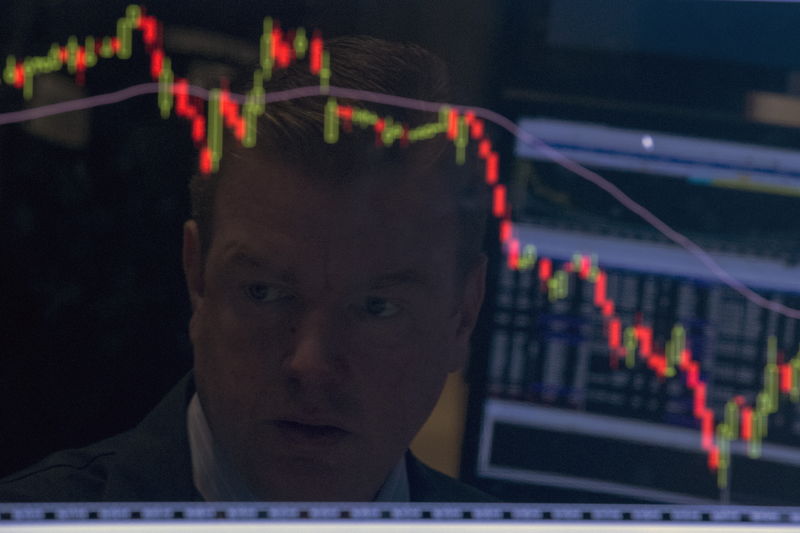By Geoffrey Smith
Investing.com -- Two major multilateral organizations cut their outlook for global economic growth this year, seeing lasting damage from Russia's war in Ukraine and the West's response to it. India becomes the latest central bank to join the 50-basis point club with a surprisingly large rate hike. U.S. stocks are back in cautious mode after Tuesday's late rally, but Chinese tech roars ahead after fresh signs of the regulators relaxing their campaign against the sector. And oil prices drift as the market waits for corroboration of a surprising rise in U.S. inventories last week. Here's what you need to know in financial markets on Wednesday, June 8.
1. OECD, World Bank cut growth forecasts
Two major multilateral organizations cut their forecasts for the world’s economy within 24 hours, as the Organization for Economic Cooperation and Development joined the World Bank in slashing its estimates for 2023.
The OECD cut its forecast for global growth this year to 3.0% from 4.5% in its last quarterly update, while also revising up its inflation forecast for its 38 advanced economy members to just under 9%.
The Paris-based think-tank warned the world will pay a “hefty price” in sustained disruption of trade flows due to the war in Ukraine, the West’s sanctions response, and ongoing supply chain disruptions from China’s zero-COVID policy.
The World Bank had cut its forecast for growth this year to 2.9%, warning that: “Even if a global recession is averted, the pain of stagflation could persist for several years.”
2. India joins the 50bp club; Poland seen hiking by 75bp
The Reserve Bank of India joined the club of central banks taking bigger-than-usual steps to bring down inflation, raising its key rate by 50 basis points to 4.90%. The RBI was responding to a surge in inflation to 7.8%, well above its 6% tolerance threshold.
It said it expected inflation to stay above target for the rest of this year, but stayed by its existing growth forecasts which see the economy slowing to a growth rate of 4% by the first quarter of 2023, from an unsustainable 16% in the current quarter.
Elsewhere, the central bank of Thailand kept its key rate unchanged, but the National Bank of Poland is expected to raise its key rate by 75 basis points to 6% at its meeting later Wednesday. That all comes one day before the European Central Bank’s next policy meeting. ECB hawks who want a 50 basis point hike in July were emboldened by a big upward revision to first-quarter Eurozone GDP earlier.
3. Stocks set to open lower as markets rethink inflation outlook
U.S. stock markets are set to open lower later, giving up some of Tuesday’s late gains as fears for the growth outlook dominate again.
By 6:15 AM ET (1015 GMT), Dow Jones futures were down 170 points, or 0.5%, while S&P 500 futures and Nasdaq 100 futures were down in parallel.
The three main cash indices had all risen by nearly 1% on Tuesday after taking a positive view on Target’s second profit warning in three weeks, which held out the prospect of discounting to reduce unsold inventory. That may take the edge off inflation gauges if it’s repeated by other retailers. Wholesale inventory data at 10 AM ET may shed more light on that.
Brown-Forman (NYSE:BFb) and Campbell Soup (NYSE:CPB) head a thin earnings roster, while Credit Suisse ADRs (NYSE:CS) will also be in focus after an alarming profit warning from the Swiss-based bank. Novavax (NASDAQ:NVAX) is up strongly after getting FDA approval for its COVID-19 vaccine. Weekly mortgage applications data are due at 7 AM ET.
4. Chinese tech rallies on gaming licenses award
Market sentiment may get a boost from fresh signs of a change of heart in Beijing toward the technology sector.
Chinese tech stocks rallied hard on local markets overnight after regulators issued a batch of licenses for new videogames – an area that has been one of many targets of the Communist Party’s disapproval in recent years.
The ADRs of gaming platform Bilibili (NASDAQ:BILI) rose 7.8% in premarket trading, adding to gains of 10% on Tuesday amid revived hopes of a more liberal attitude generally to the big fortunes amassed by owners of tech companies. Alibaba ADRs (NYSE:BABA) rose 5.2%, while Tencent ADRs (OTC:TCEHY) rose 2.3%.
5. Oil pushes higher on UAE warning; EIA inventories eyed
Crude oil prices resumed their upward march after grim forecasts from a major oil producer and the head of the International Energy Agency.
The United Arab Emirates Energy Minister Suhail Al Mazroui warned that the global supply-demand balance threatened to worsen considerably as demand in China rebounds. He also warned at a conference that the West has the capacity to make a tight market situation much worse if it leans on other countries to refuse Russian oil supplies.
The EU’s latest sanctions package not only foresees a phased end to imports of Russian fuel, but also bans European insurers (who dominate the global market) from insuring seaborne cargoes of Russian oil. That has triggered fears of a creep toward even more punitive ‘secondary sanctions’ on the sector.
By 6:25 AM ET, U.S. crude futures were up 1.4% at $121.03 a barrel, while Brent futures were up 1.2% at $122.06 a barrel, shrugging off a surprise increase in U.S. stockpiles reported by the American Petroleum Institute. The government’s data are due at 10:30 AM ET.
